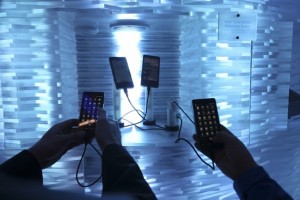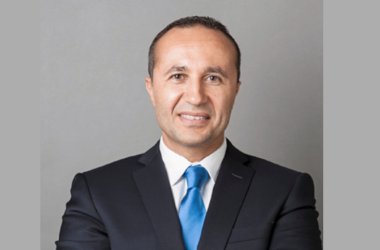Intel are set to make a major mobile push at the Intel Developer Forum next week as the company tries to remain relevant in a market where tablets and smartphones are becoming an alternative to PCs for everyday computing.
Intel is at a critical juncture with a dominant position in the PC market, but with a very small presence in the fast-growing tablet and smartphone markets. Intel will highlight new Ultrabooks and new forms of interaction — touch, voice and gesture — coming to future designs, and will also talk about its tablet strategy as the company looks to raise the competition against ARM, which rules the tablet market and has ambitions in the PC market.
Intel’s business has been hurting with the recent slump in PC sales, which has partly been affected by growing sales of tablets and smartphones. Intel on Friday cut its third-quarter revenue forecast, saying sales were hurt because of a slow global economy. Weak Ultrabook and PC sales and a cautious outlook by PC makers relying on Intel chips have hurt the chip maker, said Vijay Rakesh, an analyst at Sterne Agee, in a research note on Friday.
Despite weak sales, Intel is putting more muscle and financial resources behind Ultrabooks, a new category of thin and light laptops with flexible designs including touchscreens that can be detached and used as tablets. By finding middle ground between tablets and laptops, Intel is looking to counter ARM’s threat while also reinvigorating the PC market.
The opening speech as IDF is usually given by Intel CEO Paul Otellini, but with mobility in focus, the stage this year will be taken by Dadi Perlmutter, executive vice president and general manager of Intel’s Architecture Group. In addition to Ultrabooks, Perlmutter will provide details on the company’s next-generation Core processor for Ultrabooks code-named Haswell, which is more power efficient and will help increase performance and battery life of the next wave of Ultrabooks due out next year. Intel is decreasing the power of Haswell chips to as low as 10 watts, which is an improvement from the current crop of 17-watt Ultrabook chips code-named Ivy Bridge.
But for now, Intel said there are 40 touch-enabled Ivy Bridge Ultrabooks in the design pipeline, and models from companies like Asus, Dell, Lenovo, Panasonic and Toshiba will be on display at the show.
Intel is established in the PC platform, but is now making a big push into the smartphone and tablet markets, said Dean McCarron, principal analyst at Mercury Research.
“What we may end up seeing is how Intel manages the existing established platform, while participating in new markets as well,” McCarron said.
Another catalyst for Intel’s growth in the tablet and PC markets will be Microsoft’s upcoming Windows 8 OS, which has a touch interface and works with Intel chips. As an alternative, Microsoft will offer Windows RT for ARM-based tablets and PCs.
If Windows 8 succeeds, Intel succeeds, said Nathan Brookwood, principal analyst at Insight 64. The difference between Windows 8 and Windows RT is especially important for PC makers who have a presence in the enterprise market.
“Windows RT lacking legacy support is a problem for enterprises who have their own homegrown apps that they run on employee devices,” Brookwood said.
Intel will also share more details of its tablet-specific Atom chip code-named Clover Trail, which has already been adopted by Lenovo for its highly anticipated ThinkPad Tablet 2. Around 20 tablets based on Clover Trail are in the works, Intel has said. While Intel processors hold an advantage on performance, ARM processors are considered more power-friendly. However, Intel hopes to catch up with ARM on power consumption in a matter of years by making its chips smaller and more power-friendly through its manufacturing process, which is already the most advanced in the world.
With the PC market slumping, the money maker for Intel is its data-centre business, which deals in server chips, storage and networking equipment. Intel will highlight its server and fabric strategy at IDF, and the company is expected shed light on its low-power Atom processor for servers code-named Centerton. Quanta QCT this week announced a Centerton microserver and will show the 3U server on the show floor.






